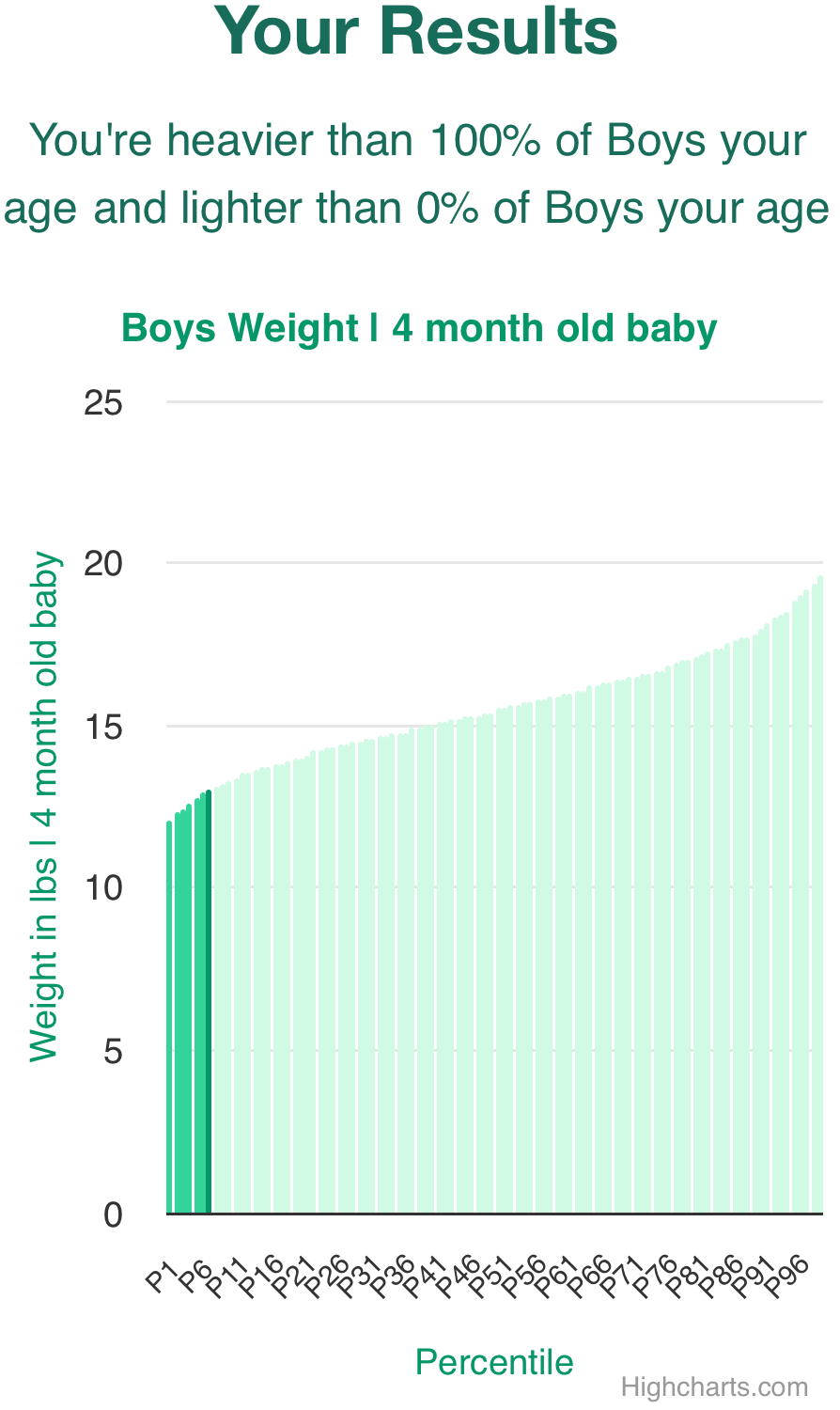Boys Weight chart in lbs for babies 4 month old baby

General Summary: 4 month old baby boys weight
In most cases, weight measurements for 4 month old baby boys will be in the range between 11 and 18 lbs. The average weight for 4 month old baby boys is 14 lbs, according to the CDC and anonymized data from users.
All Results
Enter your weight measurements above to see how they compare
So far, we have recorded [0] weight measurements for 4-month-old-baby boys on LifeMeasure!
(chart updates daily)
See more ages